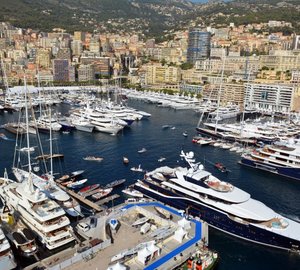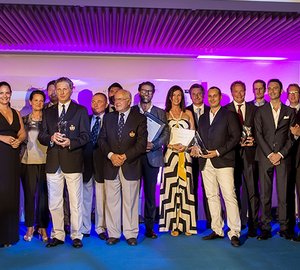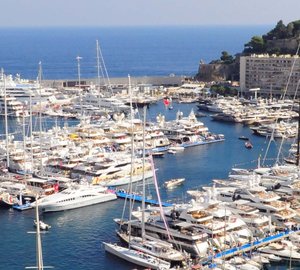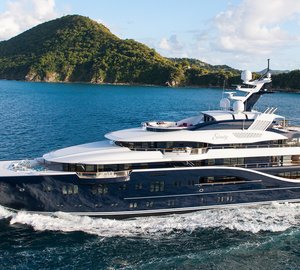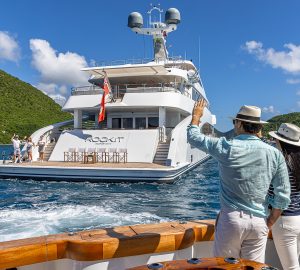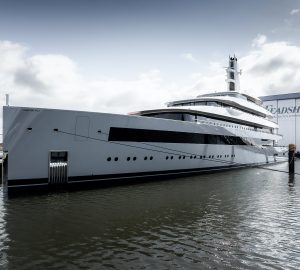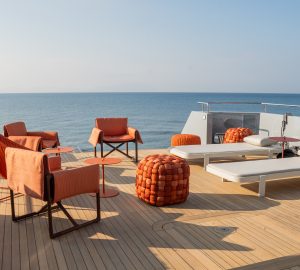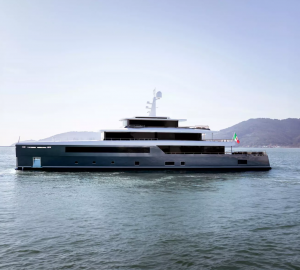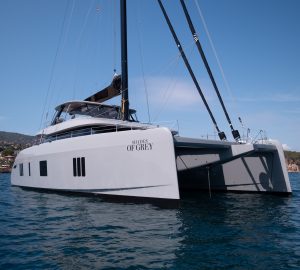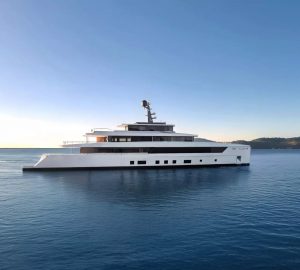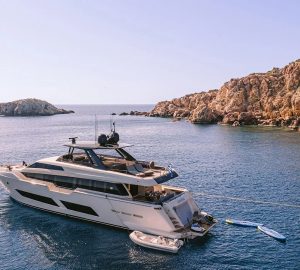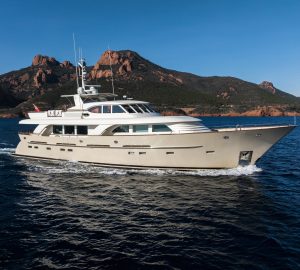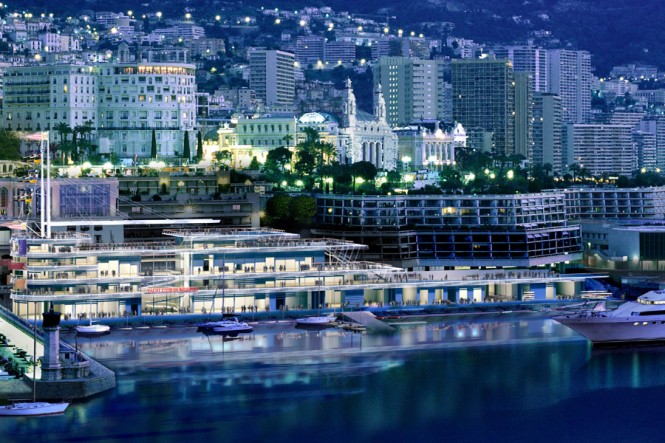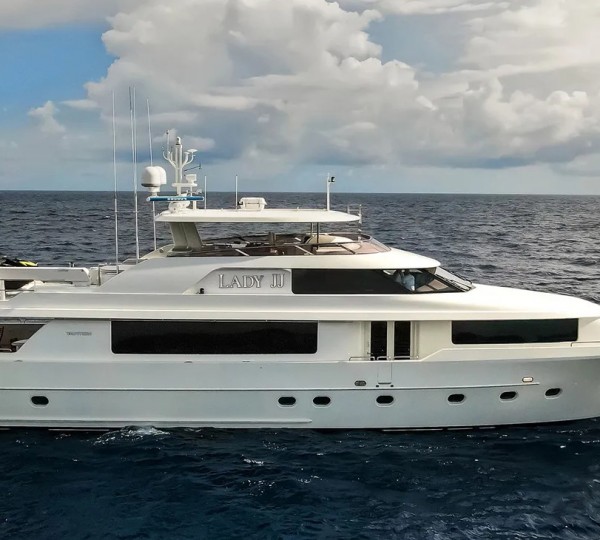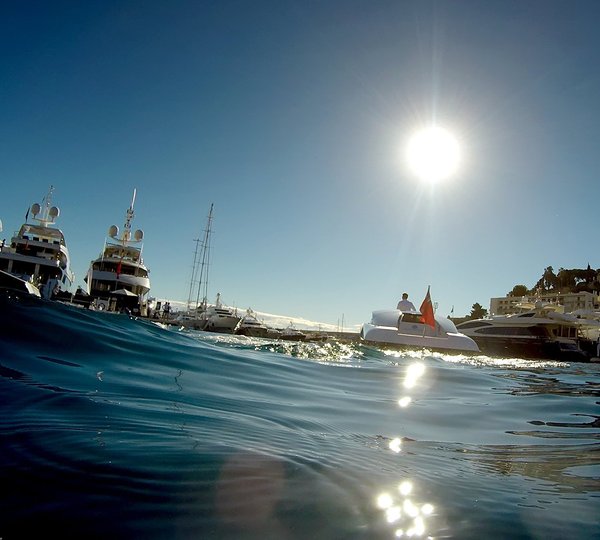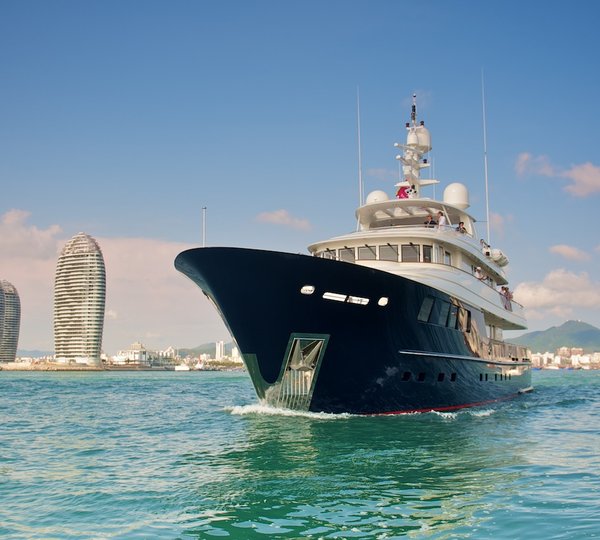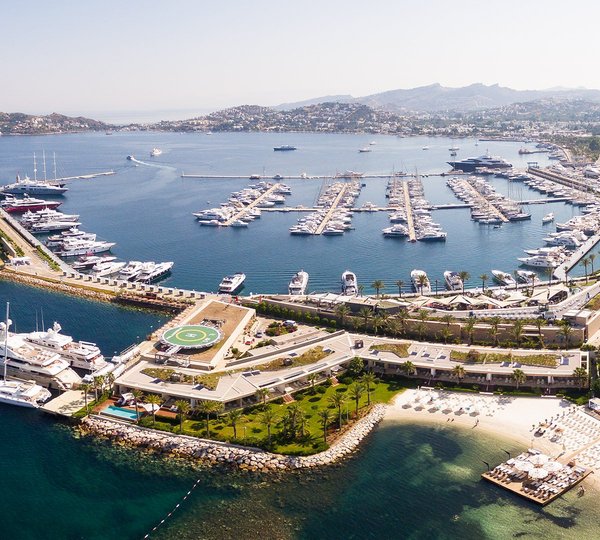Over 50 professionals from across the luxury yachting supply chain (owners, shipyards, brokers, designers, captains, yacht finance specialists, maritime experts and lawyers) were present at the dinner-debate on the economic situation in the yachting industry taking place at the Yacht Club de Monaco, which was chaired by YCM Secretary General Bernard d’Alessandri.
Sponsored by Only Yacht, the fourth edition of this symposium attracted key figures in Monaco, notably H.E. Marco Piccinini, Minister of Finance and the Economy, Paul Masseron, Minister of the Interior, Jean-François Robillon, President of the Conseil National, Jean-Louis Bissuel, Maritime Affaires Director, Jean-François Tourret, Director of the Port of Saint-Tropez, as well as GianBattista Borea d’Olmo and Daniel Realini, respectively Managing Director and Operations Director of Monaco’s harbour authority (SEPM – Société d’Exploitation des Ports de Monaco).
After short speeches by David Legrand of Fraser Yachts and Olivier Blanchet from BNP Paribas, who outlined the current situation and gave their macro-economic vision for the sector, delegates exchanged opinions throughout the dinner in an open and constructive manner.
Following an inconsistent year in 2011, where the market seemed to pick up before faltering again, reflecting the impact of instability in the global economy, all the professionals attending confirmed a lack of visibility for 2012.
Showing a certain degree of pragmatism, all agreed the current crisis was an opportunity for consolidation (one estimates 50% over-capacity). The sector must continue to restructure and raise its game by offering a fully integrated approach from shipyard to end user.
The brokers are one example, Laurent Perignon, Chief Operating Officer at Camper & Nicholsons Int. observes the significant dichotomy between larger companies running businesses under heavy charges and overheads and the independents. If the crisis continues, we may witness a double phenomenon of concentration on one side and fragmentation on the other.
Change is required in the face of new international maritime regulations and taxes, not to mention the competition emerging from China (the Ferretti Group buyout) and even from Turkey. According to Olivier Blanchet, this sector is at a crossroads with those of goods, hotels and properties in the luxury industry, yachting needs to study those business models and do more to exploit them.
Internationally renowned shipyards well placed
High profile shipyards with a strong international reputation and which are building the big yachts (over 70m) appear to be weathering the crisis better.
All the banks present admitted that they rely on the brand and reputation of the yard, as well as their client’s ability to pay and the rarity value – degree of customization, designer’s hallmarks and a shipyard’s reputation being important factors in the resale value.
“Europe, which boasts real expertise, is still leader of the customized sector with a recovery noted in the US market for +70m ”, observed yacht designer Espen Oeino. Burger Boat on the other hand reports a drop in demand for the under 40m units. In this sector, shipyards specializing in restoration and maintenance are the most optimistic, as for example ITM which claims to have already achieved its targets for the first quarter of 2012.
It’s not by chance that Pendennis is consolidating its position in its core refit business, and hopes to benefit from this year’s London Olympics to reinforce their image as an English shipyard.
Prices falling in second-hand market
Brokers report that prices have fallen by 30 to 40% compared to 2008 (before the crisis). 2011 was marked by a sharp drop in assets on the European market, while the US experienced a significant recovery.
Focus on emerging markets
According to maritime lawyer Tony Allen, of London based legal firm Hill Dickinson, the Russians are back in the market in a big way but this time the clients are younger. “The real change in this sector is in the profile of the
“third generation” of Russian owners, they are much younger with a drop in the average age of 10 to 12 years. They are looking more for new designs and a modern approach, rather than the traditional maritime culture” he says.
Words supported by the Maritime Expert Eric Ogden who explained that the challenge lies firmly in the hands of innovating designers such as Espen Oeino and Martin Francis, both of whom spoke at this dinner-debate, to keep reinvigorating this specialist and rarefied segment of the market.
Many are setting their sights on China with good reason. “Ninety percent of wealthy Chinese clients don’t need financing. However given the lack of a yachting culture, it’s all about branding. A yacht is a sign of social success”, observes Amy Milner from Kingship China.
Bertrand Vogèle from YPI agreed, “Branding is important in Asia, Lürssen and Azimut’s success bear witness to that. We are also working on a project for an 85m with Oceanco”. However, others, more skeptical, believe the Chinese
market is not yet mature enough or indeed ready, preferring to opt for South America, notably Brazil a destination where the clientele is more turned to the sea and sun.
And finally, all the professionals agreed that, “buying a yacht is above all a purchase made from the heart, an investment in the pleasure of being the owner of a boat”. which puts owners at the very heart of the business, and centre of attention. This is why the label “La Belle Classe” was created, to accompany them every step of the way in what for some is a whole new experience.
It is also an opportunity to remember that the yachting industry, which employs over 3,000 crew members in the Provence Côte d’Azur region, has a significant impact on the area’s economy, particularly the Principality which hosts many of the key players in the sector, positioning Monaco as the Capital of Yachting.

